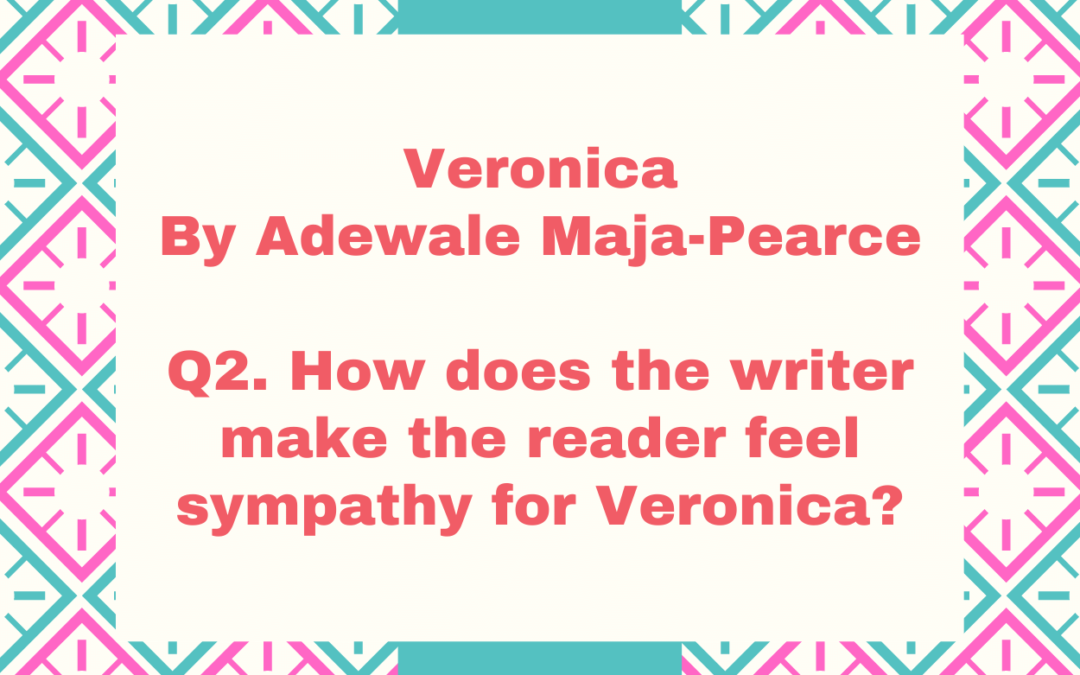Edexcel English IGCSE: Veronica
Q2. How does the writer make the reader feel sympathy for Veronica?
In your answer, you should write about:
- Veronica’s family background;
- Veronica’s expectations of life;
- the end of the passage;
- the use of language.
You should refer closely to the passage to support your answer. You may use brief quotations.
Edexcel English IGCSE Model Essay by an Expert
Veronica is a pitiful character who engages the sympathies of the reader. Both her experiences and her attitudes are incomprehensible to most readers, and the end of her life is a moving comment on the difficulty of escaping the cycle of poverty.
Despite her extremely challenging family life, Veronica is movingly dedicated to her responsibilities to her family. Her father is described as a “brute”, characterising him as an animal-like monster; this impression is confirmed when we learn that she is beaten by him as a child. In the description of Okeke “listening to her screams”, the reader is drawn into Okeke’s sense of helplessness. Despite her painful upbringing, Veronica refuses to leave the village because of her commitment to her family. Okeke probably reflects the reader’s thoughts when he questions this commitment, but she is steadfast in her dedication, stating that it is so inherent that it does not need to be explained: “They are my family, that is enough”. This sense of responsibility is even more poignant when we later discover that her parents have died and her siblings have left: despite her loyalty, she is completely abandoned.
Veronica has low expectations for life, which is highlighted through the contrast with her ambitious friend Okeke. She is aware that leaving the village would be a good thing, telling Okeke that he “must be happy to be going”. However, she does not see leaving the village as an option for her. Okeke suggests ways in which she could leave and gain qualifications, but she resists his suggestions, insisting in simple terms, “my own place is here”. She leaves this conversation with the excuse that she has “to go and cook”, which reminds the reader that she places her duty to her family above her own quality of life. Veronica is not resentful of her lot: she is not envious of Okeke’s success, and speaks “without bitterness” of her siblings’ abandonment. This attitude induces further sympathy, since she is evidently a good person.
At the end of the passage, Veronica dies a pathetic and wasteful death. When Okeke returns to the village after the war, he refrains from describing the destruction he sees, implying that it is too terrible for words. He finds Veronica as “a figure huddled on a mat on the ground”. This deferential physical position evokes pathos in the reader, and also highlights the striking differences between Veronica’s and Okeke’s lives. With characteristic pragmatism and simplicity, Veronica questions why Okeke would save her life, stating that “there is nothing left for [her] in this world”. This resignation to death is terribly moving.
Veronica lives a difficult life and dies weak and lonely, abandoned by her family and surviving her own child. Despite Okeke’s desire for her to make changes in her life, Veronica never leaves the village, even in death.



